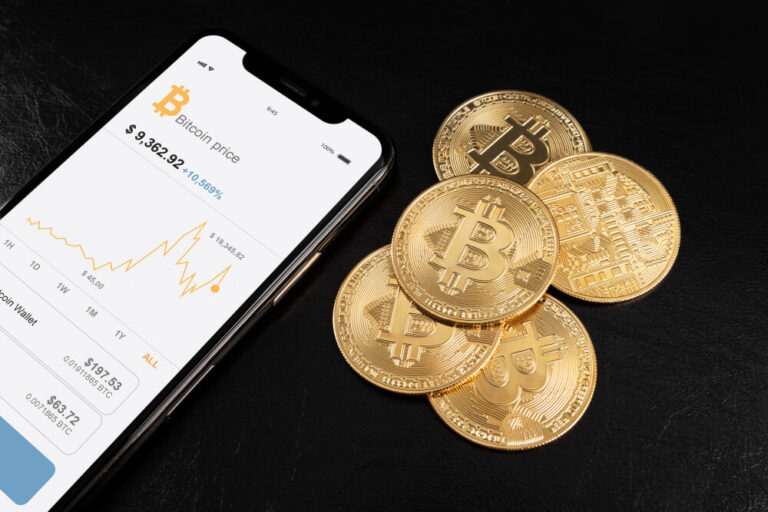Wallet-based trading has become a core part of how many people interact with cryptocurrency. Instead of keeping funds on an exchange account, traders use wallets that give them direct control over their assets while still allowing quick access to trading features. This approach offers more control and security over digital assets compared to traditional exchange accounts.
As interest in decentralized finance grows, more platforms now design their services around wallet integration. This shift allows users to trade directly from their own wallets without giving up custody of their coins, creating a balance between convenience and asset control.
1. ApeX
ApeX is a decentralized cryptocurrency exchange that focuses on wallet-based trading. It supports both perpetual contracts and spot markets, giving users flexibility in how they trade digital assets. The platform allows direct control of funds through self-custody.
Traders can access leverage of up to 30x on select tokens. This appeals to those who want higher exposure without moving assets to a centralized exchange. The interface is designed to work with Web3 wallets, which makes it suitable for users who already manage their own keys.
Fees remain the same for all participants, whether they place or take orders. ApeX also offers mobile apps and a web platform, making it accessible across devices.
Those interested in crypto trading on ApeX can work with around 15 supported tokens. The platform was developed to meet growing demand for decentralized tools that integrate with blockchain-based wallets. It aims to provide a balance between performance, security, and user control.
2. MetaMask
MetaMask is a browser-based wallet that connects directly to blockchain networks. It allows users to store digital assets, send transactions, and interact with decentralized applications. Its simple interface makes it accessible to both new and experienced traders.
The wallet integrates with many decentralized exchanges, which allows users to trade without leaving the MetaMask environment. This direct connection helps reduce extra steps compared to moving funds between separate platforms.
MetaMask supports multiple networks, with Ethereum being the most widely used. Users can also add custom networks to access other blockchains. This flexibility appeals to those who trade across different ecosystems.
In addition to asset storage, MetaMask provides access to NFT marketplaces and blockchain-based games. Many applications now include built-in MetaMask support, which makes it easier for users to connect their wallet and start using the service.
Its combination of trading access, asset management, and application integration has made it a popular choice for those who want a wallet-centered approach to crypto activity.
3. Trust Wallet
Trust Wallet is a mobile-based crypto wallet that allows users to store, send, and receive a wide range of digital assets. It supports thousands of cryptocurrencies and tokens, making it flexible for different trading needs. The wallet connects directly to decentralized exchanges for quick asset swaps.
It offers full control over private keys, which stay stored on the user’s device. This design keeps custody in the hands of the owner rather than a third party. As a result, traders can manage funds without relying on centralized account access.
The app includes features such as staking for certain coins, access to decentralized apps, and integration with hardware wallets. These tools give users more ways to manage and grow their holdings.
Trust Wallet works with many blockchain networks, allowing smooth transfers between supported assets. This multi-chain support makes it easier for traders to move funds across different ecosystems without leaving the wallet environment.
4. Binance Chain Wallet
Binance Chain Wallet is the official wallet for the Binance blockchain networks. It supports multiple chains, including Binance Smart Chain and Ethereum. This allows users to store, send, and receive different types of digital assets in one place.
The wallet connects directly to the exchange platform, so users can move assets between their wallet and trading account without extra steps. This direct link helps save time and reduces the need for repeated transfers.
It also supports decentralized applications. Users can access DeFi platforms, swap tokens, and manage NFTs without leaving the wallet. This makes it useful for both trading and blockchain-based activities.
Security features include password protection and optional recovery through a linked account. These tools help protect funds while still allowing account access if login details are lost.
The wallet is free to use, but network transaction fees still apply. This cost depends on the blockchain used for each transaction.
5. Crypto.com DeFi Wallet
The Crypto.com DeFi Wallet is a non-custodial wallet that gives users full control of their private keys. It supports storing, sending, and receiving a wide range of cryptocurrencies. Users can also connect it to decentralized applications for direct transactions.
It is available as a mobile app for iOS and Android, as well as a browser extension for Chromium-based browsers. This allows access from both smartphones and desktop devices. The wallet operates separately from the main exchange app.
Users can create multiple wallets and manage different tokens in one place. The interface is designed to be straightforward, making it easier for both new and experienced crypto holders.
In addition to basic transfers, the wallet supports token swaps and staking for certain assets. This gives users a way to interact with decentralized finance without giving up control of their funds.
Security features include biometric authentication and encrypted backups. These tools help protect private keys while keeping access convenient.
Conclusion
Wallet-based trading platforms give users direct control over their digital assets while still offering integrated exchange features. This approach reduces the need to move funds between separate services, which can save time and lower transaction costs.
They often include built-in tools for asset management, secure storage, and quick swaps between cryptocurrencies. As a result, traders can manage both long-term holdings and short-term trades in one place.
Security, ease of use, and transparent fees remain the main factors that set the best platforms apart. Choosing one that balances these elements can help users trade more efficiently and with greater confidence.


